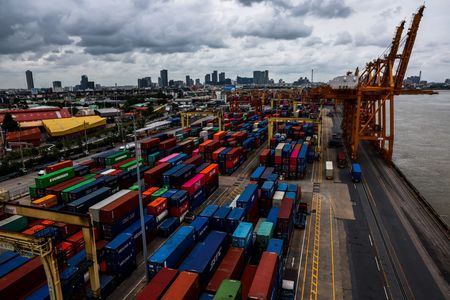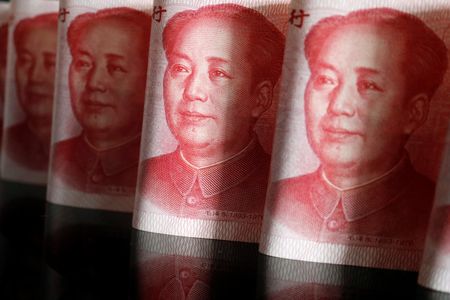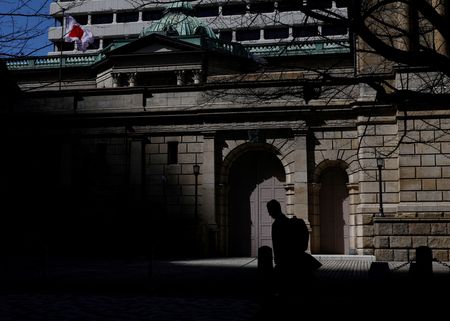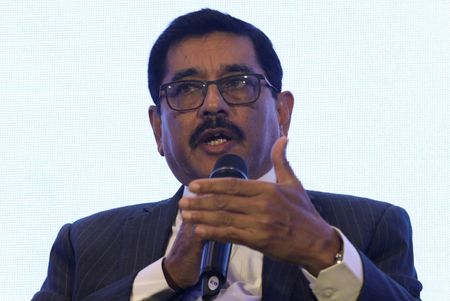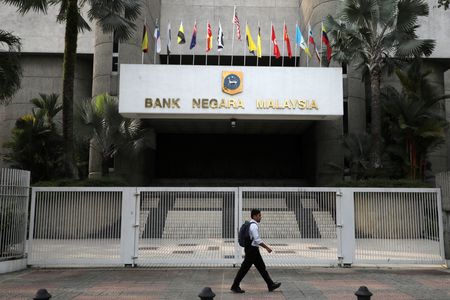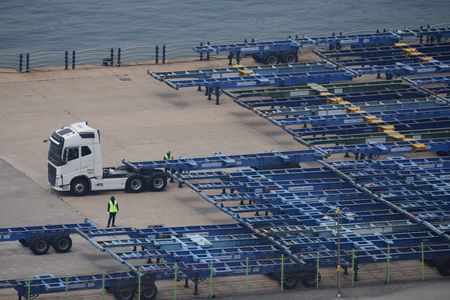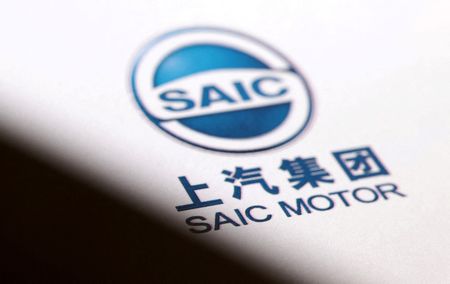BANGKOK (Reuters) -Thailand’s economy is expected to slow in the second half of the year and faces heightened uncertainty, the central bank said on Wednesday, as consumer confidence hit the lowest level in more than two years.
Thai exports, a key driver of the economy, were expected to contract 4% on a yearly basis in the second half of the year as a result of the tariffs imposed by the United States, the Bank of Thailand said.
The United States was Thailand’s largest export market last year, accounting for 18.3% of total shipments and reaching a value of $55 billion. Washington says its trade deficit with Thailand hit $45.6 billion in 2024.
Southeast Asia’s second-largest economy faces tariffs of 36% from Washington if a deal cannot be reached before August 1.
Uncertainty around tariffs and government stability pushed consumer confidence to its lowest in 28 months, falling for a fifth consecutive month, a university survey showed on Wednesday.
The economy is growing below its potential, and is forecast to expand 2.3% this year and 1.7% in 2026, deputy central bank governor Piti Disyatat said, adding those forecasts had already factored in the headwinds.
In the first five months of 2025, exports rose 14.9% from a year earlier, commerce ministry data showed, as companies rushed to deliver their products before a 90-day tariff pause came to an end. That pause has now been extended to August.
The central bank forecast exports to rise 4% this year but drop 2% next year.
A shippers’ group on Wednesday cut its export growth forecast from a range of 0% to 1% from 1% to 3% seen earlier.
Thai economic growth and financial conditions were held back by several factors and monetary policy alone had limited efficacy when addressing those issues, minutes from the Bank of Thailand’s June 25 monetary policy meeting showed on Wednesday.
At the meeting, the BOT’s monetary policy committee voted 6 to 1 to keep the one-day repurchase rate unchanged at 1.75%, after back-to-back cuts in February and April.
“Targeted measures in conjunction with business adaptation were deemed necessary,” it said.
At the review, the stronger-than-expected start to the year saw the BOT lift its central-case economic growth forecast to 2.3% for 2025, almost matching last year’s 2.5% and more optimistic than some market analysts.
The next rate review is on August 13.
(Reporting by Orathai Sriring, Thanadech Staporncharnchai and Chayut Setboonsarng; Editing by David Stanway, Martin Petty)

